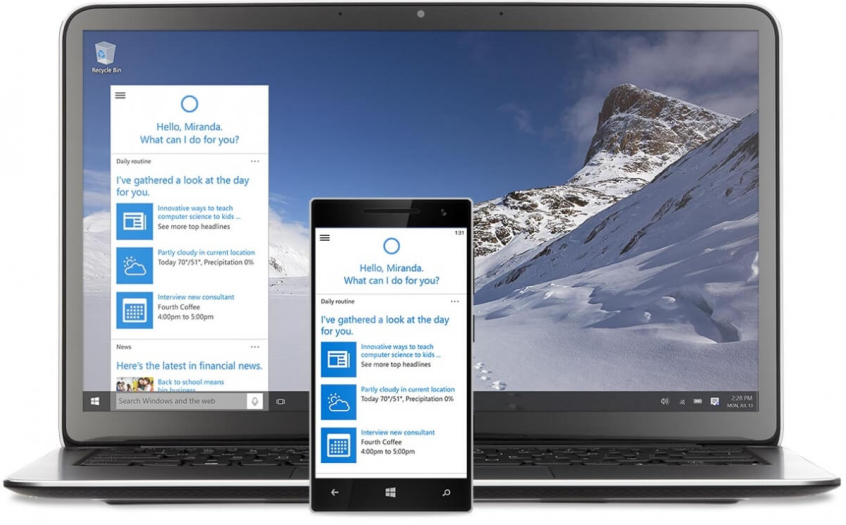
With Windows 10 now officially out, at least for some computers, users can now begin getting familiar with all that it has to offer.
Similar to any other operating system (OS), Windows 10 is neither all good nor all bad, and users will be tasked with figuring out which side outweighs the other.
Starting off with the positives, what becomes immediately clear with Windows 10 is its powerful capabilities. As many have expected, Microsoft spared no expense in making sure that their latest offering operates as well as it possibly can, and users will benefit from that.
According to PC World, Windows 10 and Windows 8 actually share a lot of common features.
First off, when it comes to storing or saving files, Windows 10 employs the same mechanism as its predecessor, meaning users are better protected against any one drive failing.
Windows 10 also possesses the same native antivirus software known as Windows Defender that is present in Windows 8.
Windows 10 also allows for easy syncing of its user's personal settings, just like Windows 8 does. This allows users to simply set up their account on one device and have it be the same all throughout if that is what they want to do.
One more notable improvement is the enhanced task manager in Windows 10, enabling users to quickly nip problematic programs in the bud and continue to maintain the optimal performance of their unit.
It's not all good however, as there is one particular feature that is causing some Windows 10 users distress, according to CNN Money.
The feature is known as Wi-Fi Sense, and what it does is basically allow users to automatically log their contacts into their wireless network without the need for them to use a password in order to do so. The feature is also an all or none deal, meaning the owner of the Wi-Fi network either allows all of his/her contacts to use the network, or none of them. They won't be able to pick and choose.
Understandably, Wi-Fi Sense is causing some security concerns among Windows 10 users, although Microsoft can always update the feature should the need arise.













